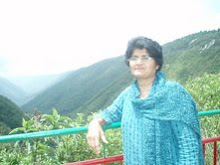Helen Thomas: "A pioneering journalist" who added "more than her share of cracks to the glass ceiling".
Helen
Thomas, a trailblazing journalist who covered the White House for nearly five
decades, has died aged 92. She died at her Washington apartment after a long
illness, the Gridiron Club, Washington's historic press organisation, said.
Ms
Thomas covered the administrations of 10 presidents and was known for asking
difficult questions. She was a fixture at White House news conferences and
considered a pioneer for women in journalism. From her seat in the middle of
the front row of the briefing room, she would grill presidents and exasperate
government spokespeople with her pointed, persistent questions. One White House
press secretary described her questioning as "torture" - and he was
one of her fans, the Associated Press reports.
Tributes
Mr Obama and his wife Michelle released a
statement praising Thomas for her work.
"Helen was a true pioneer, opening
doors and breaking down barriers for generations of women in journalism,"
he said. "She never failed to keep presidents, myself included, on their
toes. What made Helen the 'dean of the White House Press Corps' was not
just the length of her tenure, but her fierce belief that our democracy works
best when we ask tough questions and hold our leaders to account."
Former president Bill Clinton and his
wife, former secretary of state Hillary Clinton, also paid tribute to Thomas. The
pair praised her as "a pioneering journalist" who added "more
than her share of cracks to the glass ceiling".
Veteran NBC News correspondent Andrea
Mitchell tweeted that Thomas "made it possible for all of us who
followed".
Her Career
Born
to Lebanese immigrants in Kentucky in 1920, Helen Thomas found her calling
while working for her student newspaper at school. She started out as a copy
girl for a small Washington newspaper before moving to the United Press (UPI)
wire service with whom she covered the presidential campaign of John F Kennedy.
Following Kennedy's election, the huge demand for stories about First Lady
Jacqueline Kennedy helped Ms Thomas secure her place within the White House
press corps. Over the next decade, she began to report harder news and became
UPI's White House bureau chief in the 1970s - the first woman to hold the post.
Ms
Thomas was a pioneer for women in journalism, notching up a series of firsts
during her career. She became the first female president of the White House
Correspondents Association (WHCA), the first female member of the Gridiron Club
and the only female print journalist to travel with President Richard Nixon on
his first trip to China. As the senior news service correspondent at the White
House, she was often the one who would end the news conference with the phrase
"Thank you, Mr President". Her husband, Douglas Cornell, who was the
Associated Press's chief White House correspondent, died in 1982.
